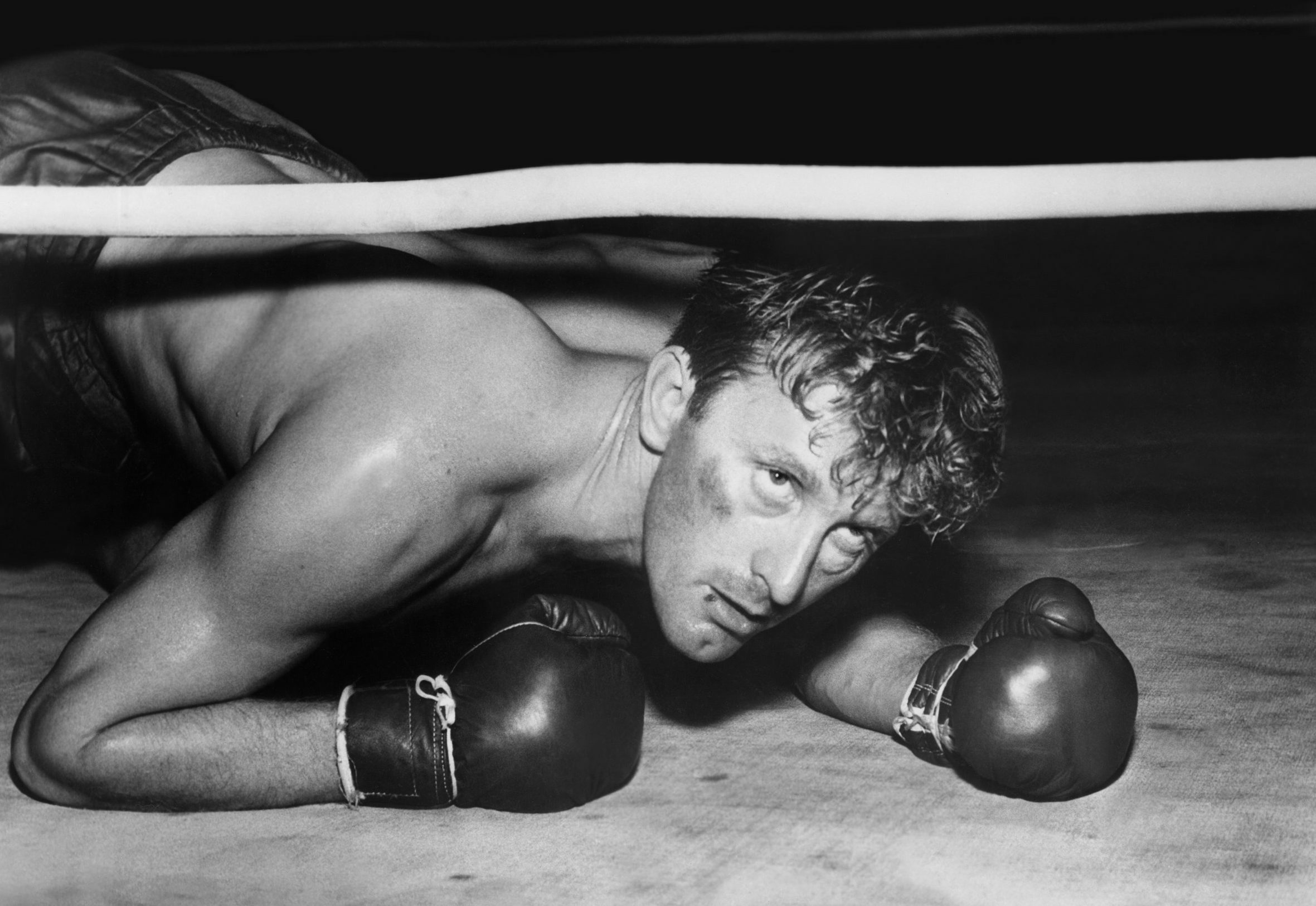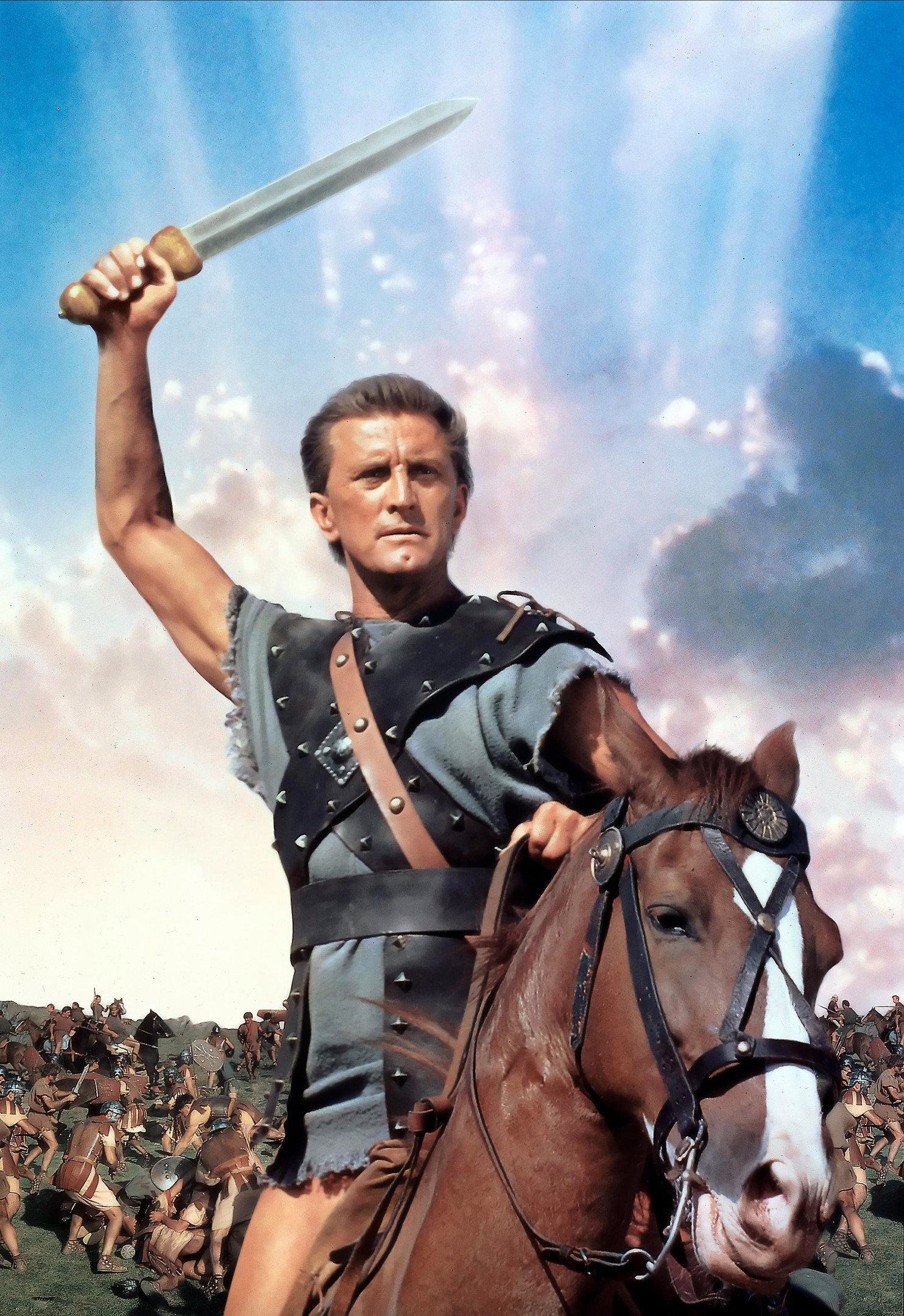
HOLLYWOOD has had plenty of tough guys, but not many have lived long enough to celebrate their 101st birthday.
Kirk Douglas will make it 102 in December, and he has proved how tough he is for longer than most of us have lived.
You might think that growing up in a busy house with six sisters would have made him soft, but Douglas had to fight to get into school, to bring in a few extra pennies for his poor family, and to get a toehold on the acting ladder.
No wonder he looked just right as a succession of macho heroes, from cowboy Westerns to tales of Ancient Greece and Rome, from modern-day gangsters to Second World War soldiers.
Let’s just say that when he portrayed Vincent Van Gogh, that was a very unusual detour.
It all began for Douglas in one of his earliest movies, 1949’s Champion, when he portrayed a selfish boxer so well that the critics raved about him.
Only Robert De Niro, in Raging Bull 31 years later, would even come close to capturing such a world and such a character so effectively.
The Great Sinner, a big-budget MGM movie, had been offered to him at the same time, but Douglas took the gamble and it paid off handsomely.
He got his first Academy Award nomination, the film itself got a handful, and one critic noted something about him that would become a trademark.
“Perhaps his best characteristic is his patented snarl and grimace,” he said. “He leaves no doubt that he is a man on a mission.”
On the screen and in real life, he was a man on a mission, and 1950s cinema wouldn’t have been the same without a string of Kirk Douglas blockbusters.
Along The Great Divide, from 1951, saw him trying to keep the peace in his first Western, and riding horses and firing guns would become second nature to him.
He was chisel-chinned Marshall Len Merrick, rescuing rustlers from a lynch mob and ensuring they face justice the legal way.
Alas, one of the ranchers has a serious axe to grind, as his son was shot in the back during the crime, all of which keeps Merrick busy.
He also has to juggle with a young lady who tries to ambush and kill him at the start and then promptly falls in love with him, with the feeling definitely mutual.
It had all the ingredients for the right leading man to turn into a hit, and Douglas duly delivered.
Detective Story, that same year, was nominated for no fewer than four Academy Awards, and again Douglas was the guy who carried it.
He was detective Jim McLeod, another tough but good man, trying to juggle a happy home life and his dreams for the future while wrestling with a grim day job.
Meeting all kinds of lowlife all day, every day, it was very gritty for its day – and still is.
One critic again praised the job he did, describing him as “so forceful and aggressive as the detective with a kink in his brain.”
Not just a tough guy, Douglas really could act, and he was fast becoming the biggest star around, in an era full of film superstars.
He got yet another Oscar nomination for The Bad And The Beautiful in 1952, playing a ruthless film producer who everyone hates.
They hated his father so much that extras had to be hired for his funeral, and the son seems no better.
This time, without cowboy revolvers or detective pistols, Douglas summoned up his nasty, cynical side, and sneered his way to glory.
It was becoming clear he wasn’t going to play many sensitive, creative types, and the world loved him for it.
All of which made the choice of Kirk for 1956’s Lust For Life quite a shock – the meanest, moodiest fighter in cinema playing a troubled painter!
It was almost as if he had decided that it was time prove he could do non-action, non-macho stuff too, and he did it remarkably well.
The film is very much an atmospheric mood piece about Van Gogh, and its main man not only demonstrated an uncanny resemblance to him, but also captured the chaos in the painter’s mind.
“Mr Douglas,” raved one critic, “succeeds most skilfully in arousing a conviction that he is, in truth, a painter beside himself to capture light and hold it forever on canvas.”
Praise indeed for a man previously known only for his first, snarl and loaded weapons. It became surprisingly apparent that Kirk Douglas was also handy with a paintbrush and sensitivity.
Paths Of Glory, the classic Stanley Kubrick anti-war movie the following year, demonstrated his fluency in French – he played Colonel Dax – and Vikings in 1958 showed more diversity.
One of the top three films in Britain that year, he played a Viking who lost one of his eyes when a falcon was sent to attack him.
Filmed in Brittany, Croatia and other wonderful coastal locations, it is also worth seeing again for another reason.
Ernest Borgnine played his father, despite being younger than him in real life!
Douglas began the next decade in fine fettle, with the wonderful Spartacus, surely one of his best-loved roles.
Again directed by Kubrick, it clinched four Academy Awards, became Universal’s biggest earner of all time, and Douglas was superb as the leader of a slaves’ revolt.
To be continued


Enjoy the convenience of having The Sunday Post delivered as a digital ePaper straight to your smartphone, tablet or computer.
Subscribe for only £5.49 a month and enjoy all the benefits of the printed paper as a digital replica.
Subscribe